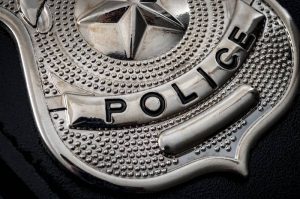In North Carolina, driving under the influence (DUI) charges are taken very seriously. If you are pulled over on suspicion of driving under the influence (driving while impaired), the officer may  ask you to perform a standardized field sobriety test (SFST).
ask you to perform a standardized field sobriety test (SFST).
Field Sobriety Tests (FST) or Standardized Field Sobriety Tests (SFSTs) are designed to help determine whether you are impaired.
In this blog post, we will discuss the SFSTs and DUI charges in North Carolina, including what you should know if you are facing an allegation of “drunk driving.”
It is important to note that standardized field sobriety tests, despite ‘verification’ studies, are not foolproof – Danny Glover, DUI Defense Lawyer
What is a Standardized Field Sobriety Test?
There are three (3) standardized field sobriety tests approved by the National Highway Traffic Safety Administration or “NHTSA.”
Those three tests include:
- The Horizontal Gaze Nystagmus or “HGN”
- The Walk and Turn (Heel to Toe)
- The One Leg Stand test or “OLS”
The Horizontal Gaze Nystagmus test involves police officers asking you to follow a moving object with your eyes, such as a finger, pen, or flashlight.
Do you need a lawyer for DUI charges?
What does the officer look for on the Horizontal Gaze Nystagmus?
Police officers look for involuntary eye movements (“jerking” or “lack of smooth pursuit”) that may be an indicator of impairment.
Officers may also consider your inability or unwillingness to follow the “stimulus,” which, as stated, may be the officer’s finger, pen, or flashlight.
What does the officer look for on the One Leg Stand Test?
The Heel to Toe (Walk and Turn) test and the One Leg Stand test both require you to perform physical tasks while the police officer looks for signs of impairment, such as swaying, losing balance and using your arms for balance.
The One Leg Stand Test has four (4) clues, those are:
- Dropping foot (puts foot down) / touching foot to ground before the estimated thirty (30) seconds expires
- Swaying while balancing
- Hopping in order to keep balance
- Using Arms for Balance
According to the NHTSA, the verification studies indicate only 65% accuracy in determining a BAC – Blood Alcohol Concentration of .10 or higher.
The legal limit in North Carolina is .08, which to some extent calls into question the reliability of field sobriety tests, particularly the one-leg stand test, that was originally “verified” using the .10 standard – Danny Glover, OBX Drunk Driving Lawyer
What does the officer look for on the Walk and Turn Test?
Field sobriety tests are subjective and depend on the officer’s observations of your performance. 
The Walk and Turn Test has eight (8) clues that an officer will look for, those include:
- Starting the Walk and Turn Test Too Soon – Before Instructed to Begin
- Stop While Walking on a real or imaginary line
- Incorrect Number (9) Steps
- Heel to Toe – Steps do not touch on each of the nine steps down and back
- Raises / Using Arms For Balance
- Swaying – Loss of Balance
- Improper Turn (to the left) on the ninth step
- Inability / Failure to Follow Instructions as given by the Police Officer
What factors can adversely affect field sobriety tests?
There are various factors that can make a person perform poorly on standardized field sobriety tests, such as nervousness, medical conditions, roadside conditions, and physical disabilities.
That’s particularly true of field sobriety tests that involve balancing, such as the one-leg stand test and the walk and turn, where the pitch of the roadway and roadway conditions can be problematic when any field sobriety test is used to establish probable cause.
The validity of the three field sobriety tests involves careful compliance with the testing protocols. Field sobriety testing is subjective and is only as good as the officer administering the standardized sobriety tests in the standardized, proscribed manner – Danny Glover, Outer Banks DUI Lawyer
That being said, if you do perform poorly on standardized field sobriety tests, it may give the officer probable cause to arrest you for DUI.
Is the finger-to-nose test reliable?
No. The finger to nose test is not one of the verified field sobriety tests. The three tests that have been verified are the walk and turn test, the one leg stand, and the horizontal gaze nystagmus test.
DUI Charges in North Carolina 
In North Carolina, irrespective of your age, if you have a blood alcohol concentration (BAC) of 0.08% or higher while driving, you may be charged with DUI.
If you are under the age of 21, the legal limit is 0.00%.
That means you are not allowed to have any amount of alcohol in your system if you are underage and are operating a vehicle on the public streets or highways of North Carolina.
That type of offense, while very similar to DWI charges, is set forth in a separate NC Criminal Law known as Driving by a person less than twenty-one (21) years old after consuming alcohol or drugs.
What are Grossly Aggravating Factors?
Criminal defense lawyers may refer to that charge as a Provisional Licensee Violation.
The North Carolina DWI Law does not use any of the common acronyms related to “drunk driving” such as DUI or DWI.
N.C.G.S. 20-138.1 is entitled “Impaired Driving.”
Drugged / Impaired Driving
Additionally, North Carolina has a zero-tolerance policy for drug impairment while driving, meaning that any driver who has any amount of an illegal drug or prescription medicat
ion in their system can be charged with DUI.
The consequences of a DUI conviction in North Carolina can be severe, including fines, license suspension, community service, alcohol education classes, and even jail time.
These consequences can have long-lasting impacts on your personal and professional life, which is why it is essential to seek legal counsel if you are facing DUI charges.
What to Do if You Are Facing DUI Charges 
If you are facing DUI charges on the Outer Banks of North Carolina, it is crucial that you seek the assistance of an experienced OBX DUI defense attorney.
An attorney can help you navigate the legal system, review the evidence against you, and guide you through the process.
That may include challenging the field sobriety tests if they were improperly administered, challenging the results of the AlcoSensor FST (field sobriety test), and looking into the validity of the traffic stop.
What happens if you are convicted of “Drunk Driving” in North Carolina?
In conclusion, if you are facing DUI charges in North Carolina, it is important to understand the SFST and its potential implications.
Even if you perform poorly on the field sobriety tests (SFSTs), there may be options available.
It is important to seek the assistance of an experienced DUI defense attorney who can help you protect your rights and explain your legal options.
Call Outer Banks Lawyer Danny Glover now to schedule your complementary consultation.
 North Carolina Criminal Law Updates
North Carolina Criminal Law Updates







